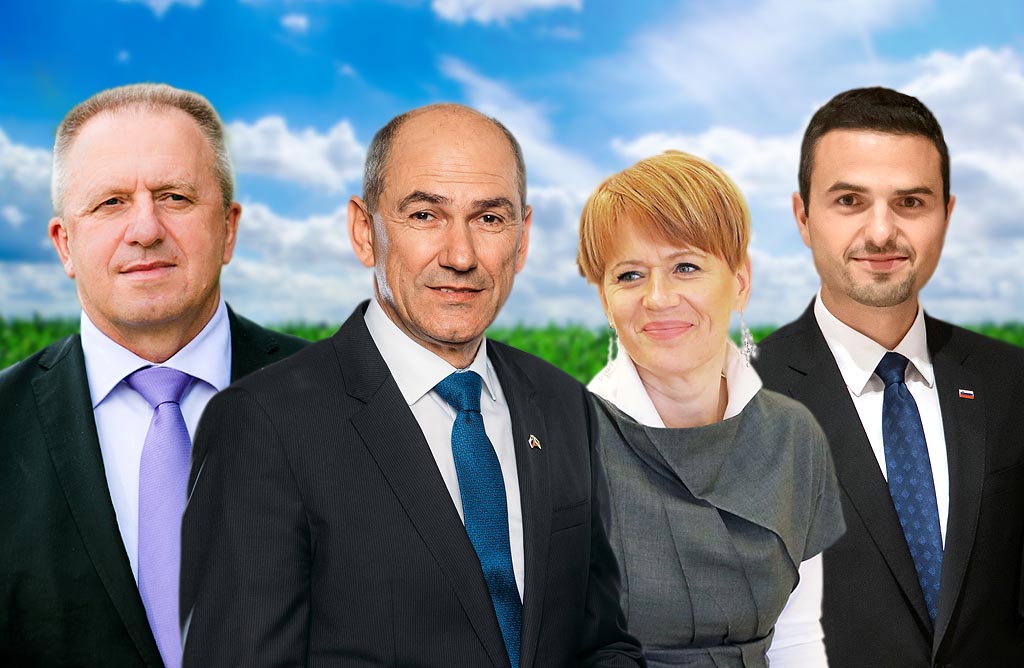We need to talk about everything that the Janša Government has done in the short time since the beginning of its term, when it heroically addressed the situation left behind by the deserters of the Šarec Government, and tackled the corona crisis instead of them, solving it with the anti-corona legislative packages. The latter have greatly improved the social position of ordinary people. During the epidemic, the first and second anti-corona packages provided for a better position of many Slovenian citizens, and later, the citizens were well-taken care of with the third and fourth anti-corona packages as well.
During the corona crisis, the current government of Janez Janša took care of solving many social problems that Slovenian citizens are facing. Let’s take a look at what the individual anti-corona packages have brought. The first package, adopted with the goal of mitigating the effects of the novel coronavirus epidemic, contained many useful solutions for the social field. Here, we should mention the status of workers who did not work due to “force majeure,” and the unemployment benefits, which the citizens received from the first day of unemployment onward. Among other things, it was stated that “the state reimburses the employers for paid wage compensations to the workers who have been temporarily laid off,” and the Republic Slovenia also paid their wages for the workers who were temporarily laid off work due to the conditions on the market. “The maximum reimbursement of compensation to the employer is limited by the amount of the average salary for the year 2019, which amounted to 1,753.84 euros (gross),” reported the Government of the Republic of Slovenia.
It was also stated that none of the aforementioned compensations should be lower than the minimum gross salary, which is the Government of the Republic of Slovenia’s attempt to further curb the consequences of the new coronavirus epidemic for all those with the lowest salaries. The Government of the Republic of Slovenia also considered social security contributions: “Employers to whom the state reimburses wage compensations for workers who are temporarily laid-off or who do not work due to force majeure are also entitled to exemption from all social insurance contributions.” The social security contributions for workers receiving wage benefits due to temporary being laid-off or force majeure, “as a result of childcare obligations due to the closure of kindergartens and schools and other objective reasons or the inability to come to work” as a result of the suspension of all public forms of transport or the closure of state borders, will also be paid from the state budget.
“The exemption applies to the insured persons who, during the time when the intervention measures under this Act are being implemented, continue to work, and receive a salary.” It was also stated that the employers who do not have to pay the pension and disability insurance contributions must pay a monthly crisis allowance of 200 euros to each of the employees “whose last-paid monthly salary does not exceed three times the minimum wage.” No taxes or contributions were paid for the allowance. The self-employed, farmers and religious staff were also exempt from paying social security contributions. The retirees were also well taken care of, as they received a one-time solidarity allowance. The purpose of these measures implemented by the Government of the Republic of Slovenia was to ensure higher social security for the financially weakest retirees whose pensions do not exceed 700 euros, and for the “unemployed recipients of the disability insurance benefits.”
Supplement to pensions and for large families
“The supplement was paid in three different amounts (300 euros, 230 euros and 130 euros), depending on the amount of the pension (up to 500 euros, from 500,01 euros to 600 euros and from 600,01 euros to 700 euros).” Certain measures were also introduced in the field of family, including the possibility for fathers to return from their paternity leave “if they have to return to work during the state of emergency, and they can then use the unused part of their paternity leave later.” The supplement for large families was also increased: “with three children, the allowance is 100 euros higher (504.48 euros), and for the families with four or more children, the allowance is 200 euros higher (691.52 euros).” The beneficiaries of social assistance or income support also received a one-time solidarity allowance of 150 euros for the month of April.
“the recipients of the disability insurance who were unemployed, worked part-time, were temporarily laid-off or were absent from work due to force majeure, as well as the recipients of occupational pensions if the pension does not exceed 700 euros, were also eligible for a one-time solidarity allowance, from 130 to 300 euros
In addition, the Government of the Republic of Slovenia announced that the one-time solidarity allowance, which amounted to 150 euros, was also received by part-time students and recipients of parental allowance, while those receiving child allowance also received the solidarity supplement in the amount of 30 euros for each child, but only if they were “in the 6th income class or lower.”
The third and fourth anti-corona legislative packages also brought some novelties. It was written that the third package is actually a “content upgrade” of the first two packages. “The key measures in the field of work of the Ministry of Labour, Family, Social Affairs and Equal Opportunities, are the measure of partial reimbursement of wages to workers who have been temporarily laid-off, for all employers for the period until June 30th, 2020, and the measure of partial subsidization for shorter working hours, for the period until December 31st, 2020.” The fourth anti-corona legislative package includes “the possibility of extending the measure of being temporarily laid-off, determining and paying compensation for being quarantined, financing the additional staff in social welfare institutions in the public network and the Employment Service of Slovenia, and introducing a mobile health protection application for informing the users when they come in contact with someone who is infected.”
Domen Mezeg

